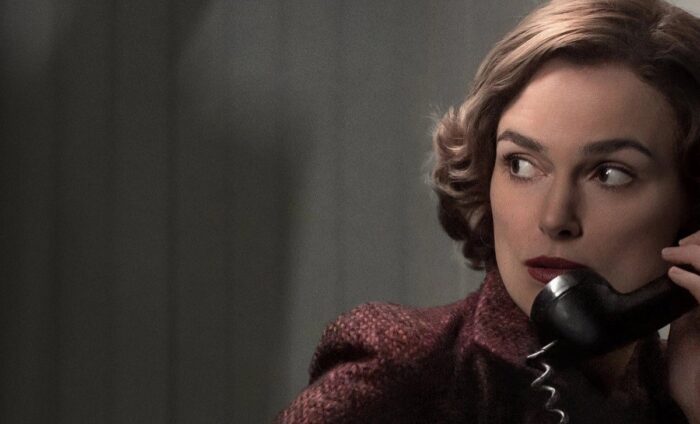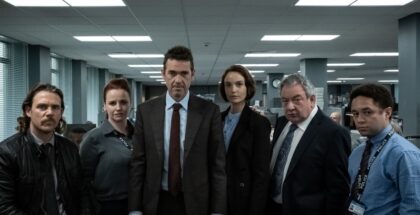True Crime Tuesdays: Boston Strangler
Review Overview
Suspense
5Sexism
7Substance
6Helen Archer | On 16, May 2023
In the early 1960s, the women of the greater Boston region were terrorised for months by what was assumed to be a single serial killer. Dubbed the Boston Strangler by reporters Loretta McLaughlin and Jean Cole, the killings ascribed to the strangler began in June 1962 and ended in January 1964, with 13 women murdered. Anthony DeSalvo was arrested in October 1964, after committing a sexual assault, and the police felt they had their man. Yet that was not the end of the mystery of the spate of killings – it was, in fact, just the beginning.
Written and directed by Matt Ruskin, Boston Strangler is not a remake of the Richard Fleischer’s 1968 film The Boston Strangler. While the earlier film depicted the torturous deaths of the victims and the police hunt – led by Henry Fonda as Assistant Attorney general of Massachusetts John S Bottomley and George Kennedy as chief investigator Phil DiNatale, and resulting in the final, unforgettable scene in which Tony Curtis as DeSalvo finally acknowledges his crimes – it was based on the fallacy that DeSalvo had disassociate identity disorder, and that his alleged multiple personalities were hiding the killing from his ‘true’ self. There was, however, no suggestion that the real DeSalvo suffered from any such psychiatric disorder, and the truth was in fact more sinister – DeSalvo’s murders were thought to have given cover to other men who murdered under the guise of the Boston Strangler.
Here, the forces for good – and the detectives of the piece – are the two female journalists who covered the case for the Boston Record American. Keira Knightly plays Loretta McLaughlin, while Carrie Coon is Jean Cole, Loretta’s senior and unofficial mentor, both battling the sexism of society in general and the newspaper industry specifically. They, too, originally ascribed the killings to one person – before their investigations ultimately suggested that there were several perpetrators.
That violent men could take the modus operandi of a known serial killer in order to make him take responsibility for the murders they committed is a premise dripping in potential, and one which could go in a number of thought-provoking directions. Sadly, the film misses the mark when it comes to exploring the constant threat of violence against women. As McLaughlin and Cole delve deeper into the case, criticising the police investigation, they are bombarded with anonymous phone calls, with men loitering outside their homes and, in the case of Loretta, seeking an interview with a suspect who lures her further and further into his empty house. And yet these scenes end swiftly, leaving no trace of the fear the reporters must have felt in their day-to-day lives. It all falls as flat as the muted, grey-toned cinematography.
Nor are the pressures these two journalists face in a man’s world explored with any degree of depth. Loretta is juggling a young family with her career – her husband, James (Morgan Spector), initially supportive, gets more and more impatient with her work ethic as the film goes on, and she misses meals and special occasions so she can track down leads. Though Jean Cole admits that she, too, feels the same pressures – and that her own family life is hanging by a thread – we see no evidence for this other than basic exposition. The character of Jean Cole is seen solely through the eyes of Loretta, so much so that she seems like a caricature.
It is a shame, because there is talent to work with here – Chris Cooper plays newspaper editor Jack Maclaine, while Alessandro Nivola takes the part of the one detective who takes Loretta seriously, even as he grows frustrated with his own colleagues’ handling of the case. As DeSalvo, David Dastmalchian gives a rather understated, opaque performance. And yet none of the actors can overcome the staid material they have to work with. The problem is not that there is nothing to say about the case after all this time; but in the hands of Ruskin, the material has been sadly squandered.
















